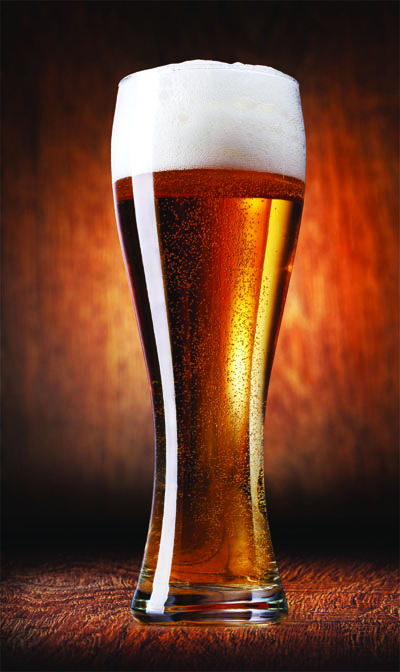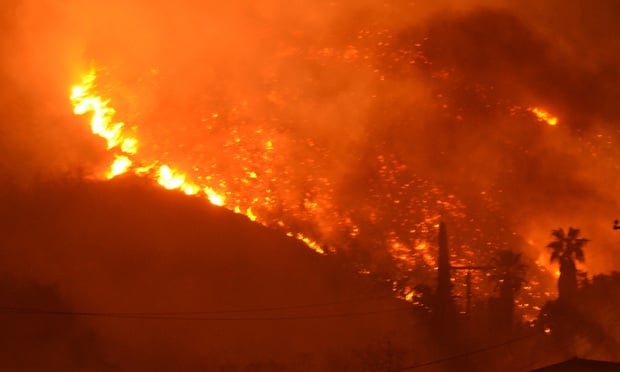 Growing in size and profits—and requiring specialized coverage for a barrelful of exposures—the craft brewery industry offers producers lots of business to tap into.
Growing in size and profits—and requiring specialized coverage for a barrelful of exposures—the craft brewery industry offers producers lots of business to tap into.
Peter Whalen, owner of the Whalen Insurance agency in Northampton, Mass., made up his mind back in the early 1980s that he wanted to differentiate himself from competitors in his area.
Within walking distance of Whalen's office was the Northampton Brewery, a local brewpub. After a few visits there, he got to know the business and its risks—and recognized its potential to become his forte, a specialty to complement his standard Home, Auto and Small Business clients.
And Whalen has succeeded with his vision, carving out a successful niche for himself by offering specialized coverages to craft breweries. Today, that business accounts for about one-fifth of his annual revenue.
“I do it because I love it,” Whalen says. “The people in the craft-beer industry really care about what they do.”
 Chris Ballard, president of the Ballard Agency in Kirkland, Wash., similarly noticed years ago that no local agents were going after craft brewers, and he decided to make it a part of his business focus.
Chris Ballard, president of the Ballard Agency in Kirkland, Wash., similarly noticed years ago that no local agents were going after craft brewers, and he decided to make it a part of his business focus.
Now, there are so many startup breweries that Ballard says he can “barely keep up with all the inquiries.” He is even a small minority investor in a craft brewery that is soon to open its doors.
BURGEONING BREW BUSINESS
Indeed, beer brewing has far surpassed its amateur-in-the-basement roots to become a billion-dollar industry—and one ripe with opportunity for agents and brokers who gain the knowledge of the many unique insurance needs of craft brewers.
The go-to carrier for insuring craft breweries, according to agents, is The Hanover Insurance Group—which took on the business when it acquired OneBeacon's renewal rights for small and middle-market commercial business in 2010.
“The niche is strong and exploding, and it's great for agents looking for specialization,” says Roger Pare, vice president of middle-market industry segments for Hanover—which recently has received calls from multiple agents looking to get into the beer-brewing game.
“Craft brewers are the future of beer; it has a wide appeal, and these types of beers are really growing in popularity,” Pare adds. “There's a lot of money coming in. Everyone wants to be the next Sam Adams.”
 To underscore his point, one only needs to consider restaurant menus lately. Craft-beer recommendations now accompany or replace wine suggestions. More liquor stores have a craft-beer section.
To underscore his point, one only needs to consider restaurant menus lately. Craft-beer recommendations now accompany or replace wine suggestions. More liquor stores have a craft-beer section.
“Beer is also recession-proof,” adds Jim Lassen, Hanover's director of middle-market segments.
CRAFTING COVERAGE FROM THE BOTTOM(S) UP
Hanover, which now insures more than 25 percent of the Top 50 craft-brewing companies in the U.S., can be involved in the craft-brewing business process from the start, with services available to assist owners in laying out the brewery.
The insurer has the means to provide advice on managing tours, hiring help, implementing alcohol-awareness programs and putting in place business-continuity plans, says Lassen.
“Our agents can learn to serve as risk managers [for craft brewers],” says Pare. “The business owners are typically only concerned with making good beer when they start out. They might not understand the risks.”
And the risks are numerous and complex. A policy with some cooking-exposure coverage overlaid on a commercial-business policy, for example, just doesn't cut it.
 At craft breweries, workers operate in close proximity to high-pressurized containers, sometimes filled with high-temperature liquids. Many craft breweries have tasting rooms for tour parties, which increases Liquor Liability exposure through the dispensing of alcohol to visitors.
At craft breweries, workers operate in close proximity to high-pressurized containers, sometimes filled with high-temperature liquids. Many craft breweries have tasting rooms for tour parties, which increases Liquor Liability exposure through the dispensing of alcohol to visitors.
Other craft breweries also have restaurants on the premises, and so must consider the typical litany of exposures for a business that serves food.
Then there are business-interruption and spoilage concerns to consider as well as commercial-auto risks.
“It's a low-frequency, high-severity business, so you can be profitable,” says Ballard. “But there are no small claims. This equipment is expensive. You get a fire and very expensive machines are ruined—and you have to dump and clean everything.”
OUNCE OF PREVENTION WORTH A POUND OF PORTER
Matt Stinchfield has transferred much of his knowledge as a career safety professional to the craft-brewery industry—becoming one of the most recognized experts and consultants for breweries. He's known as the “beer safety guy.”
Additionally, Stinchfield is a homebrewer and managing member at Ploughshare Brewing Co. in Lincoln, Neb.—and he's a World Beer Cup judge.
“Lots of times, these aren't necessarily seasoned businesspeople,” Stinchfield says, speaking of brewers who are just starting out. “They have a passion for brewing, and that's the only thing they want to do.”
So brewers who want to focus just on the beer will call in Stinchfield to identify and mitigate the potential risks. In his safety audit, he looks at the packaging lines, evaluates confined spaces, checks the protective gear worn by employees, studies the use of forklifts and makes note of areas of potential falls.
“I can see something they don't—something they may not even think about,” Stinchfield says.
Some craft breweries—which may brew as many as several million barrels per year—are large enough to employ their own in-house safety specialist.
 Andy Troccoli is the risk and environmental affairs manager for Collins, Colo.-based New Belgium Brewing Co.—a fast-growing craft brewery. New Belgium is now the third-largest craft brewer behind Sam Adams and Sierra Nevada, and it entertains more than 100,000 visitors per year at its facilities.
Andy Troccoli is the risk and environmental affairs manager for Collins, Colo.-based New Belgium Brewing Co.—a fast-growing craft brewery. New Belgium is now the third-largest craft brewer behind Sam Adams and Sierra Nevada, and it entertains more than 100,000 visitors per year at its facilities.
“We're a rapidly growing company, but that growth creates another set of problems,” he says. “There's a lot going on here.”
Troccoli says New Belgium buys a variety of coverage for its basic Property risks and adds coverages for Boiler and Machinery, Errors & Omissions, General Liability, Employment Practices, Liquor and Fiduciary, among others.
Coverage for Business Interruption and Continuity is something “we are really looking hard at now,” Troccoli adds.
“We are very deliberate in how we manage risk,” he says. “We have a highly trained staff, with specialists in food and beverage [preparation], industrial hygiene, regulations and recycling.”
While risk management may not be on the radar—or in the budgets—of smaller craft breweries, they can manage their exposures through a combination of safety policies and the appropriate insurance coverage.
“It doesn't take much, sometimes, to change a dangerous environment to one that is safer,” Stinchfield asserts. “There's a lot to lose—right down to the business itself—if there isn't an attempt made to mitigate risk right from the first day.”

Want to continue reading?
Become a Free PropertyCasualty360 Digital Reader
Your access to unlimited PropertyCasualty360 content isn’t changing.
Once you are an ALM digital member, you’ll receive:
- Breaking insurance news and analysis, on-site and via our newsletters and custom alerts
- Weekly Insurance Speak podcast featuring exclusive interviews with industry leaders
- Educational webcasts, white papers, and ebooks from industry thought leaders
- Critical converage of the employee benefits and financial advisory markets on our other ALM sites, BenefitsPRO and ThinkAdvisor
Already have an account? Sign In Now
© 2025 ALM Global, LLC, All Rights Reserved. Request academic re-use from www.copyright.com. All other uses, submit a request to [email protected]. For more information visit Asset & Logo Licensing.








